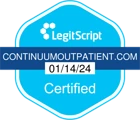Outpatient Opioid Rehab: Pros and Cons
What is Opioid Use Disorder?
Opioid use disorder (OUD) is a medical condition characterized by the problematic use of opioids. Opioids are both prescription pain relievers (like oxycodone, hydrocodone, codeine, and morphine) and illicit substances like heroin.

Criteria for OUD
OUD is characterized by a pattern of opioid use leading to significant impairment or distress. The DSM-5 provides criteria for diagnosing OUD.
- Opioids are taken in larger amounts or over a longer period than intended
- Persistent desire or unsuccessful effort to cut down or control opioid use
- A great deal of time is spent in activities necessary to get, use, or recover from the opioid’s effects
- Craving, or a strong desire to use opioids
- Recurrent opioid use resulting in a failure to fulfill major role obligations at work, school, or home
- The person continues to use opioids despite ongoing social or relationship issues caused by them
- People may stop or cut down on important activities due to opioid use
- Recurrent opioid use in situations in which it is physically hazardous
- Continuing to use opioids despite knowing that the substance may have caused or worsened their problems
- Developing a tolerance, meaning the need for more opioids to get the same effect or getting less effect from the same amount
- Withdrawal symptoms, or the use of opioids to relieve or avoid withdrawal symptoms
The Significance of Opioid Use Disorder
How Does Outpatient Opioid Treatment Address Long-Term Opioid Use?
Outpatient programs offer a comprehensive way to help people with long-term opioid misuse. These programs aim to support sustained recovery. Outpatient opioid treatments are designed to help people with opioid use disorder.
They include various aspects, such as:
Medication-Assisted Treatment (MAT)
Individualized Treatment Plans
- The severity of the substance use
- Any co-occurring disorders
- Personal circumstances
- Other health issues
Counseling and Behavioral Therapies
These therapies are crucial to support long-term recovery. Two common approaches for treating opioid misuse are cognitive-behavioral therapy (CBT) and motivational interviewing (MI). These approaches help individuals change their attitudes and behaviors related to drug use.
Psychiatric and Psychological Services
Many individuals with OUD also have co-occurring mental health disorders that require treatment. To support long-term recovery, outpatient opioid treatment provides access to psychiatric care. This includes medication management for mental health conditions.
Continuity of Care
Outpatient programs offer support and can refer to other services, like residential treatment or sober living. These referrals can provide continued care that supports long-term recovery.
Opioid treatment programs aim to create a stable and supportive environment for recovery for the person. Outpatient programs are flexible, so people can still maintain their daily tasks while in recovery.
The Roles of Nutrition and Physical Fitness in Outpatient Opioid Treatment
Physical Fitness and Recovery
Opioid misuse often leads to a neglect of physical health. Engaging in regular exercise can counteract this. Exercise restores physical well-being.
It addresses issues that are often worsened by opioid use, such as:
- Weight fluctuations
- Cardiovascular problems
- Weakened immune function
- Blood pressure issues
Exercise is instrumental in the recovery of brain function. Chronic opioid use alters the brain, especially in areas related to reward, stress, and self-control. Exercise aids in brain recovery and the formation of new neural connections.
How Exercise Impacts Mental Health
Nutrition and Recovery
Harm Reduction Strategies in Opioid Use Treatment
Provision of Naloxone and Fentanyl Test Strips
Safe Use Education
- Safer injection techniques
- The importance of not using substances alone
- Understanding the potency of synthetic opioids like fentanyl
Needle and Syringe Programs (NSP) and Supervised Consumption Services
Health Education and Care Services
The Role of Creative Therapies in Opioid Treatment Programs
Music Therapy
Music therapy can help individuals explore their emotions, manage stress, and reduce anxiety or depression.
Music engagement allows people to express themselves without words. This can be helpful for those who struggle with communication. Rhythmic components of music have been shown to aid in functions such as timing, coordination, and motor skills development.11
Art Therapy
Art therapy helps people express themselves and deal with emotions using visual art like drawing and painting. Creating art can serve as a distraction from cravings. It can also help process traumatic experiences often linked to substance use disorders.
Drama Therapy
Drama therapy uses theater techniques, like role-play and storytelling, to help people solve problems and reduce drug-related harm.
It can promote self-awareness, empathy, and interpersonal skills. These skills are beneficial for those rebuilding their lives during recovery.12
Impact of Creative Therapies on Emotional Expression and Healing
The Importance of Peer Support in Outpatient Opioid Treatment
Impact of Peer Support on Sense of Belonging and Support
- Peer-led initiatives are based on understanding and respect, which can reduce isolation and stigma
- Peers can share stories and experiences to inspire and motivate recovery
- People are more likely to trust others who have successfully recovered themselves
- Seeing peers who are in recovery can provide hope and a tangible vision for the future
- Peers often provide a level of accountability
- Peer support continues outside of treatment hours, offering ongoing support and a sense of belonging
Relapse Prevention and Sustained Recovery with Outpatient Opioid Treatment
Relapse Prevention Strategies
- Medication-assisted treatment to manage cravings and withdrawal symptoms.
- Counseling and behavioral therapies to address underlying causes of opioid use
- Education on relapse prevention
- Support from peer groups like Narcotics Anonymous (NA)
- Aftercare planning to offer ways to address triggers and cravings once treatment ends
- Life skills training and family therapy to strengthen recovery foundations
- Holistic approaches, such as mindfulness and yoga, further fortify individuals against relapse
What is Medication-Assisted Treatment and its Role in Outpatient Opioid Programs?
- Normalize brain chemistry and body functions without the negative effects of the abused drug.
- Block the euphoric effects of alcohol and opioids.
- Relieve physiological cravings.
- Some medications, such as naltrexone, can stop the euphoric effects of opioids. This can make people less interested in using opioids.
The Importance and Benefit of MAT
MAT can play an important role in increased retention rates for treatment programs. Studies have shown that those using MAT were almost 2 to 3 times more likely to remain in treatment than those not using it.13
In outpatient treatment, MAT can help people live a normal life by providing structure and support. This balance is crucial for long-term recovery. It helps people remain stable, reducing the chance of relapse.
Addressing Co-Occurring Conditions with Outpatient Treatment
Chronic Pain Management
Mental Health Conditions
- Providing appropriate medications for mental health conditions that are safe to use with MAT
- Using evidence-based therapies to address underlying mental health issues
- Providing support groups for people with dual diagnoses
- Teaching coping strategies for dealing with mental health crises, alongside access to crisis intervention services
Trauma-Informed Care
To improve outpatient opioid treatment, therapies such as eye movement desensitization and reprocessing (EMDR) or trauma-focused cognitive behavioral therapy (TF-CBT) can be provided. These approaches specifically address the effects of trauma.
- Create a safe treatment environment for emotional stabilization.
- Teach techniques to manage stress and increase mindfulness, which can be helpful for those with a history of trauma.
Build Resilience and Overcome Adversity with Outpatient Opioid Treatment
What is Post-Traumatic Growth?
Post-traumatic growth (PTG) is the positive change that happens when people face life’s challenges. PTG goes a step further than resilience. It transforms the struggle with substance use into a platform for profound personal change.15
Counselors assist in recognizing new strengths and center therapy on the positive changes in recovery. In outpatient programs, strength-based therapy can focus on personal attributes instead of substance use.
Pros and Cons of Outpatient Opioid Treatment
Pros of Outpatient Opioid Treatment
Cons of Outpatient Opioid Treatment

Receive Effective Outpatient Opioid Treatment with Continuum Outpatient Center
What is Continuum Outpatient Center? We are a treatment center in San Antonio, Texas, focused on person-centered care for substance abuse and mental health. Our program assists patients in overcoming challenges associated with substance use.
What We Offer
In addition to evidence-based methods like CBT and MAT, our therapy sessions may incorporate trauma-informed yoga, EMDR, and exercise. These approaches help with underlying trauma and opioid misuse, and provide tools for a healthier life.
Contact Us Today
Find the effective outpatient opioid treatment that you deserve at Continuum Outpatient Center. Our team of trained professionals is ready to walk with you into recovery. Start your journey today by calling 210.405.5935 or reaching out online.
We’re here to help you heal.
Resources
- https://www.hopkinsmedicine.org/health/conditions-and-diseases/opioid-use-disorder
- https://www.cdc.gov/drugoverdose/training/oud/accessible/index.html
- https://www.cdc.gov/drugoverdose/deaths/index.html
- https://www.fda.gov/drugs/information-drug-class/information-about-medication-assisted-treatment-mat
- https://www.webmd.com/mental-health/addiction/exercise-help-addiction-recovery
- https://www.mayoclinic.org/diseases-conditions/depression/in-depth/depression-and-exercise/art-20046495
- https://www.sciencedirect.com/science/article/abs/pii/S0272735821000210
- https://pubmed.ncbi.nlm.nih.gov/28806640/
- https://www.samhsa.gov/find-help/harm-reduction
- https://nida.nih.gov/publications/drugfacts/naloxone
- https://www.musictherapy.org/assets/1/7/FactSheet_Music_Therapy_and_Addiction_Treatment_2021.pdf
- https://www.nadta.org/what-is-drama-therapy
- https://nida.nih.gov/publications/research-reports/medications-to-treat-opioid-addiction/efficacy-medications-opioid-use-disorder
- https://www.ncbi.nlm.nih.gov/pmc/articles/PMC7756048/
- https://www.apa.org/monitor/2016/11/growth-trauma


